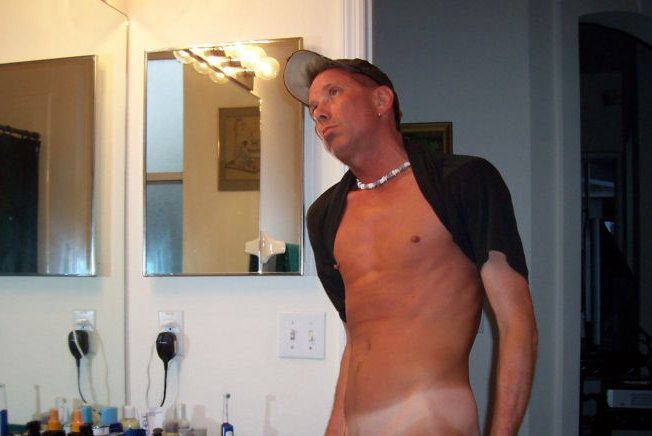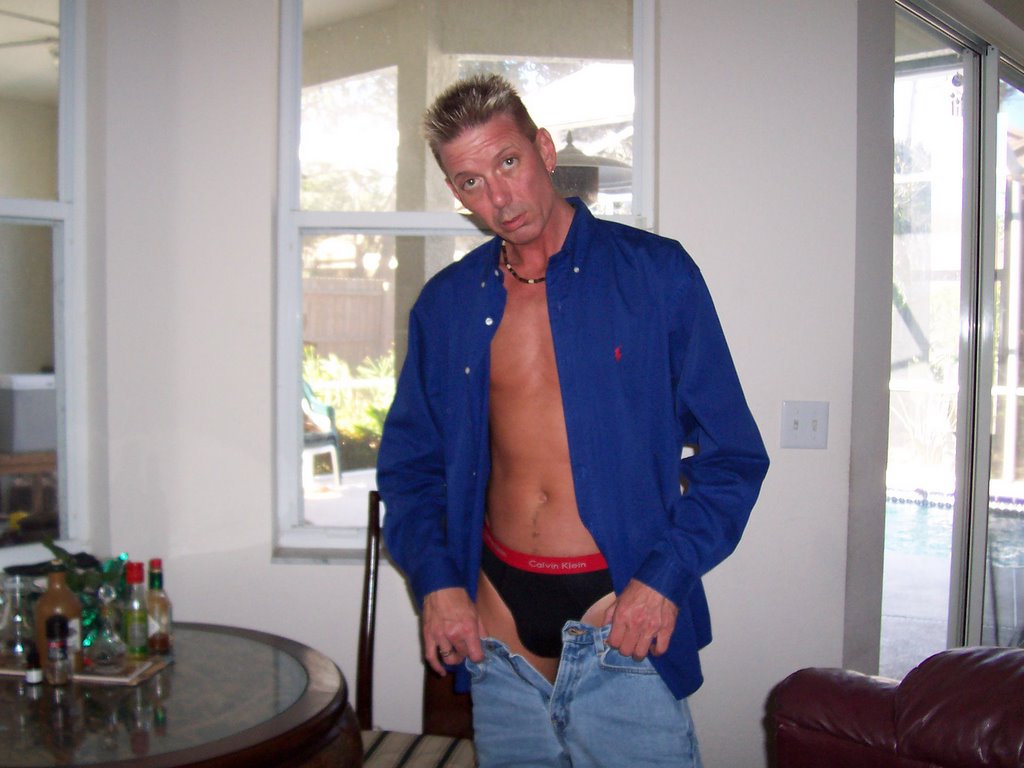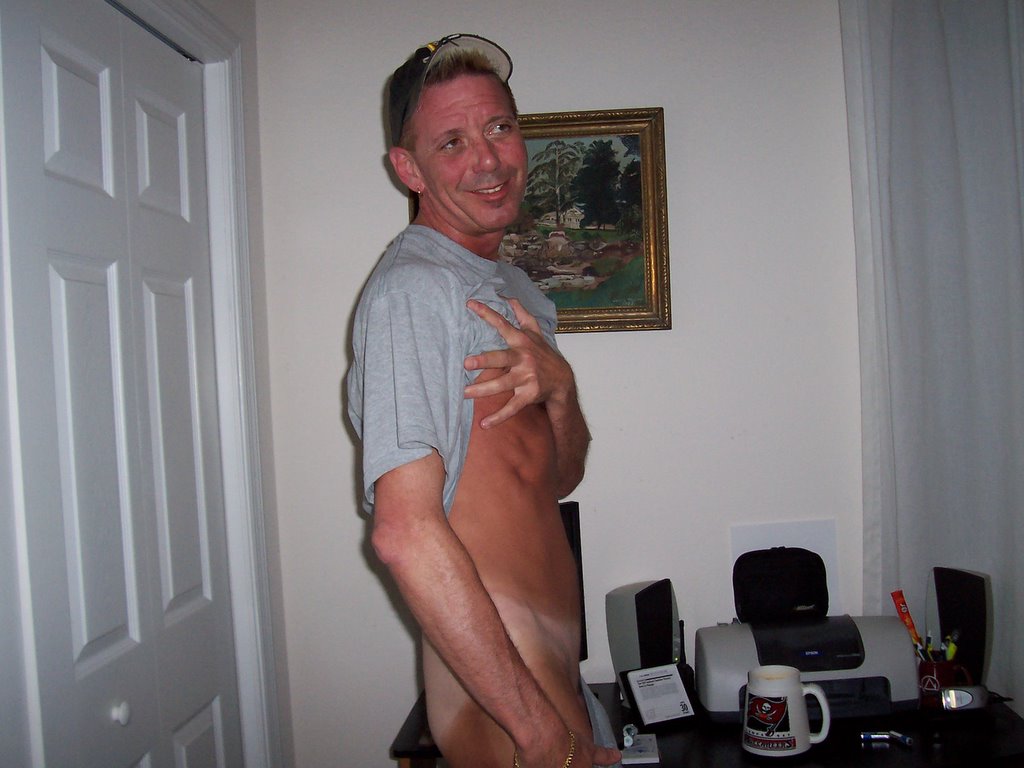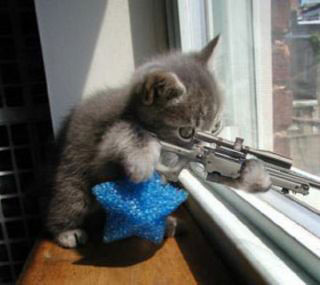I took an impromptu drive with some friends up to Baltimore the other night.
While I usually enjoy unplanned road trips, they're much less fun when you're hitting the road for the purpose of visiting a friend whom you've just found out is suffering from several forms of cancer.
Tony was the receptionist at the first law firm I worked for. Always friendly, he was definitely the high point of that job. My boss was awful. I hated him with the fire of a thousand suns. But being able to chat with Tony about the ins and outs -- of life, as well as of the job (though that was mostly the "outs") -- made things at least a little more bearable. Although we were never "close friends" -- he tends to favor hanging out with the ladies, if you know what I mean -- we definitely had a mutual good relationship. We were the same age and chatted about all manner of things, including some very heated, yet respectful, discussions after which we agreed to disagree: issues like welfare, homosexuality, race relations. His presence in the office was definitely much appreciated.
We lost touch after I left the job. Aside from the sporadic emails, we never managed to get together, whether for a drink, or for lunch, or for coffee.
Last week, I got an email from another former employee of the firm: Tony was suffering from cancer in both his lungs and in his kidneys, and he was in a special care facility at Johns Hopkins University, in Baltimore. Within hours, we mobilized: by 6:30, four of us, all former employees of this infamous law practice and therefore friends with Tony, were piled into a car and on our way up to JHU.
We attempted to take some flowers with us, but the hospital but the kaibosh on that idea: nothing unsanitized was to enter the room. Instead, upon learning that there was in fact a CD player in the room, we purchased and gave Tony a pair of CDs that we knew he'd like. (Upon seeing the KISS "Gold" collection, Tony weakly smiled and stuck his tongue out a la Gene Simmons. It was funny to watch.)
Tony's condition was much worse than we had heard. In addition to cancers in two different major organs in his body, his compromised immune system apparently left him subject to various infections. We were forced to put on scrubs, latex gloves, and even face masks with visors before entering the room. If this precaution were to keep Tony from catching any of our germs, that would be one thing, but the scary thing is, it was more for our benefit than for his: he had already caught some uber-infectious agent which could possibly spread to us. In addition, such infectious agent could cling to our clothes, etc. (hence the scrubs), so we had to take precautions against any transfer whatsoever. (Oh, and also, there was a fear that the CDs we took to him might not make it out of the room, because they might become biohazardous as well. Unless they decide it's possible to adequately "scrub down" the CDs before they leave the room, the CDs won't make it.)
Tony looked thinner and weaker than I've ever seen him. Healthy, he tipped the scales at probably a solid 300 pounds. He was always attempting to bulk up; he had strange ambitions of becoming a professional wrestler. (He and The Miz -- yeah, that'd be a treat.) Lying there in his hospital bed, he looked like he topped out at 180. His legs, once powerfully muscular, now betrayed the outline of his bone where none was visible before. His face lost the cherubic healthiness it once held; his smile was difficult to muster, and didn't radiate the way it usually did. The multitude of tubes sticking out of his body didn't help things, either: one in his neck, one coming out of the top of his gown, a catherter, several IVs. His head was bald; I'm not sure if that was the result of chemotherapy, or just a voluntary shaving.
The vainest part of me permitted a fleeting thought of how thin he looked, and how I wished I could lose the weight he did -- but hopefully without contracting cancer. Then I promptly hated myself for thinking it.
Tony was not his jovial self while we were there, spending a lot of the time watching the basketball game on television. Unable to speak, he found it difficult to engage us in conversations when we talked to him. Monologues started getting awkward; there's only so much you can say unilaterally to a guy when he pretty much isn't responding to anything. You get self-conscious after a while; you feel like you're babbling.
Sadly, I think the mask -- with its unfortunate effect of obscuring the better part of all of our faces -- rendered all four of us odd-looking to Tony. Coupled with the fact that he hadn't laid eyes on me in years, I left the room not terribly convinced that he ever knew who I was.
No one has given up hope on Tony, but I think everyone's acknowledging that he's got an extremely tough road ahead of him. While JHU tells him there's nothing else they can do for him, Tony's family is waiting to hear from a facility in Chicago which might be able to help him more. In the face of these odds, we did what everyone tends to do: we talked to Tony about all the things we would do as soon as he got better: go to hockey games; get that after-work drink we kept talking about; snack on our favorite foods.
But if we're really honest with ourselves, we'd recognize that the chances of us actually doing any of that are artificially lowered in light of these circumstances.
The worst part? In the car on the way back, all four of us were talking about how unfair life is, why Tony should get stricken with this crap. In particular, if we had the power to do so, each of us would gladly hand the cancers off to our former boss -- the common thread that linked all five of us -- rather than Tony. None of us likes our former boss at all.




